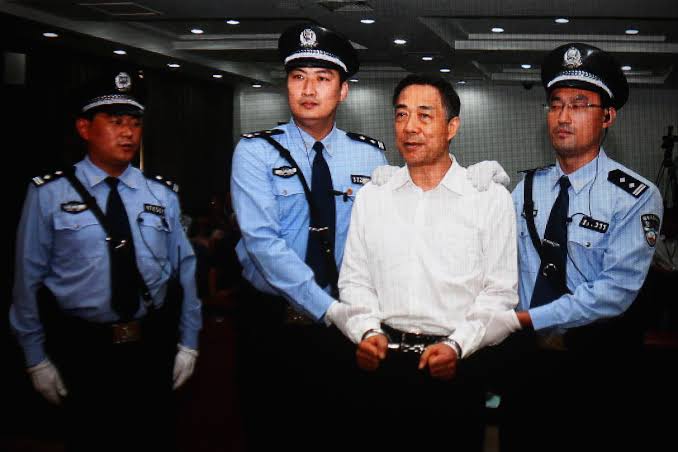Skip to content
China Sentences Former Agriculture Minister to Death With Reprieve in Bribery Case.
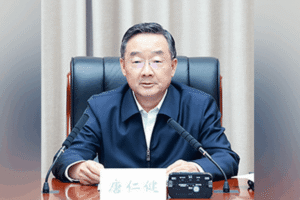
In a high‑profile anti‑corruption ruling, a court in northeastern China has sentenced Tang Renjian, formerly China’s Minister of Agriculture and Rural Affairs, to death with a two‑year reprieve for accepting bribes worth hundreds of millions of yuan.
The decision underscores Beijing’s continuing commitment to using sweeping legal measures in its long‑running anti‑graft campaign. (China Daily Global)
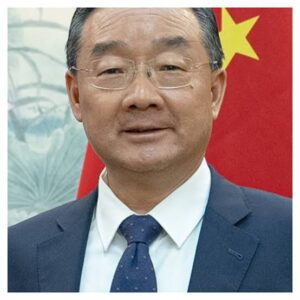
Background & Charges
Tang Renjian, aged about 63 (born in Chongqing), held several senior political roles over the past two decades, including serving as governor of Gansu province and, later, as minister of agriculture. (China Daily Global)
In May 2024, he came under investigation by China’s top anti‑corruption body for “serious violations of laws and regulations.” (Wikipedia)
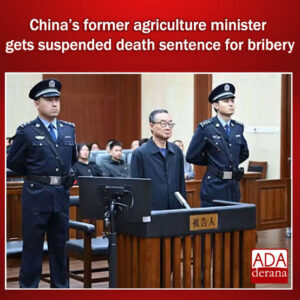
By September 2024, he had been removed from office and expelled from the Chinese Communist Party. (Wikipedia)
At trial, prosecutors accused Tang of misusing his various positions—spanning local and central government posts—from 2007 to 2024 to facilitate business deals, project contracts, appointment adjustments, and other favors for entities and individuals.
In return, he allegedly accepted bribes totaling more than 268 million yuan (roughly US$37–38 million) in cash and property. (Business Recorder)
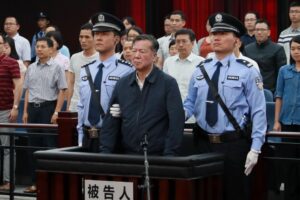
The court framed these acts as causing “particularly severe losses” to the state and the people’s interests, meriting the death sentence under China’s criminal law for especially grave corruption cases. (Global Times)
Verdict & Legal Implications
On 28 September 2025, the Changchun Intermediate People’s Court delivered its first‑instance verdict, sentencing Tang to death with a two‑year reprieve. (Business Recorder)
Alongside the death sentence, the court ordered the lifelong deprivation of his political rights, confiscation of all his personal property, and transfer of illicit gains to the state treasury. (Global Times)
The “death with reprieve” verdict is a uniquely Chinese judicial option in extreme corruption cases: the execution is suspended for two years, during which time the convict’s behavior is monitored.
If no further offenses are committed during that probation period, the sentence is typically commuted to life imprisonment—and under some circumstances, may be further reduced for good conduct. (China Daily Global)
The court explicitly cited Tang’s cooperation—his confession, voluntary disclosure of additional evidence, remorse, and the significant recovery of illicit assets—as mitigating factors justifying the reprieve. (Global Times)
During his trial (held publicly on 25 July 2025), prosecutors presented evidence and cross‑examined both Tang and his defense team.
Observers including deputies to China’s National People’s Congress, members of the Chinese People’s Political Consultative Conference (CPPCC), and citizens were in attendance.(Global Times)
In his final statement, Tang pleaded guilty and expressed remorse. (Global Times)
Broader Context & Analysis
This case is emblematic of President Xi Jinping’s vigorous anti‑corruption campaign, which has ensnared thousands of officials, including at the highest echelons of government and the military. (The Week)
Despite criticisms that the campaign could be used to target political rivals, advocates say it is essential to preserve the legitimacy and integrity of the Party.
Legal experts note that in China’s judicial system, a suspended death sentence is one of the harshest punishments short of immediate execution—offenders rarely escape life imprisonment if the reprieve is upheld.
The court’s reliance on Tang’s confession and cooperation reflects one of the few possible paths to mitigation in such high‑stakes cases. (China Daily Global)
Some observers see this verdict as a signal that no official —even one in charge of a key sector like agriculture— is immune from scrutiny.
Others point out the tensions in a system where the Party is both the discipliner and the beneficiary of political control.




